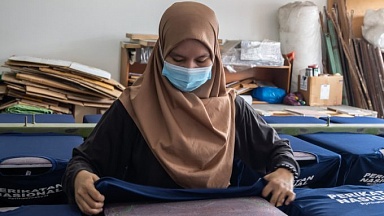Economic cooperation between Russia and Kazakhstan is multi-vector, mutually beneficial and promising. Russia ranks 4th in terms of FDI in Kazakhstan ($1.9 billion in 2021), while Kazakhstan accounts for the largest share of all Russia’s accumulated investments in the CIS countries ($11.2 billion) Among all directions of FDI in Kazakhstan, only Belarus is ahead of Russia, the volume of accumulated investments in Russia is about $1 billion. The largest volume of mutual investments are in the fuel and energy sector, including investments related to oil and gas production and transportation, nuclear power, and mainline power generation. There is also active cooperation in the aerospace industry, fertilizer production, mechanical engineering, metallurgy, logistics, etc. As a result, Kazakhstan is among the ten largest trading partners of Russia, ranking 8th in exports and 9th in imports. Russia, in turn, ranks 9th in imports from Kazakhstan and 1st in exports.
Russia and Kazakhstan are the key countries of Eurasian integration and play a decisive role in ensuring security in Central Asia and the Eurasian space as a whole.
Russia and Kazakhstan are active members of the EAEU, the CSTO and the SCO, participating in the development and security of a vast territory from the Indian to the Arctic Ocean, from the Pacific Ocean to the Atlantic Ocean. In the context of deglobalization and regionalization of the world economy, active interaction within the framework of integration structures with such countries as China, India, Pakistan, etc. can become the most important factor in ensuring secure long-term development based on the principles of mutual respect and mutual benefit.
The socio-cultural sphere in the interaction between Russia and Kazakhstan requires increased attention from both countries.
Kazakhstan confidently ranks first in terms of the number of its students in Russian universities. 4 out of 5 students studying abroad do it in Russia (for example, in 2020, more than 60,000 Kazakh school graduates entered Russian universities). Joint scientific research projects are being carried out by Russian and Kazakhstani specialists. There is active cooperation in the field of medicine and pharmaceuticals. However, over the time that has passed since the collapse of the USSR, the share of the Russian population in Kazakhstan has significantly decreased and the role of the Russian language as the language of interethnic communication has decreased. These circumstances create additional difficulties in the implementation of cooperation projects, and the potential of such cooperation is far from being achieved.
We also invite you to familiarize yourself with other materials posted in special sections of the Roscongress Information and Analytical System EAEU, SCO and Foreign direct investment dedicated to topical issues of international cooperation.



